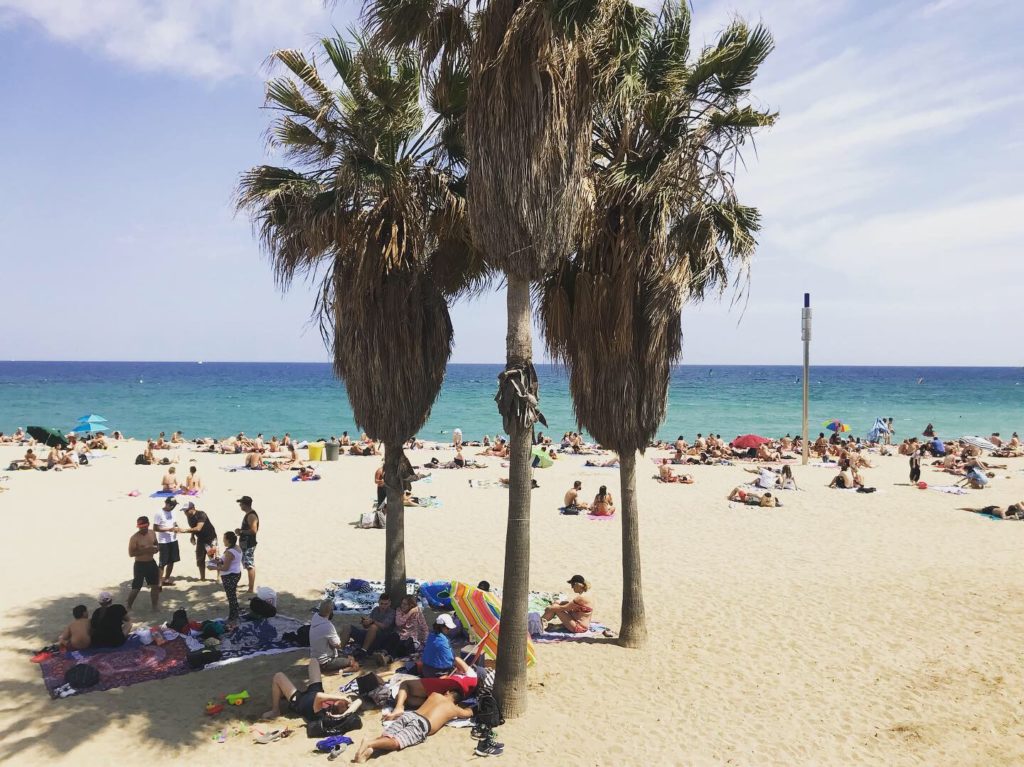After 2.5 years of living in Barcelona, one question that I get asked alllllll the time is: “so why did you move to Barcelona?”
The short answer? Year-round sunshine. High quality of life. Mountains/beach/proximity to nature. And the laid-back lifestyle.
A better question would be “why would you *not* live in Barcelona?!”
No, it’s not perfect…but it’s pretty frikkin’ awesome.
Even so, if you’re thinking about moving to Barcelona, there are a few things you should know before you pack your bags…
1. People work to live, not live to work
Just before my visa was approved, the man at the New York consulate asked me why I wanted to live in Spain.
My response?
“I love that in Spain, people work to live. They don’t live to work like Americans do.”
Two and a half years later, I can say that it’s true. Spaniards love their long, booze-filled lunches, beers for breakfast (no joke), after-work drinks and mid-day siestas. And let’s not get started on all the holidays. With a minimum of 22 paid days off per year, PLUS 14 public holidays, Spaniards take that work/life balance thing preeeeetty darn seriously.
People here don’t want to waste away in a cubicle or work 50 hours a week. They’d rather make less money and actually enjoy their lives.
Here’s an example: I once went to a restaurant with a group of people and the waiter refused to walk up one flight of stairs to serve us. He told us that we had to come downstairs to place our order (’cause he just didn’t feel like walking up).
So we left…and the restaurant lost out on a lot of business as a result. But I don’t think they cared.
This live-first, work-second mentality also explains why most businesses are closed on Sundays…and the entire month of August.
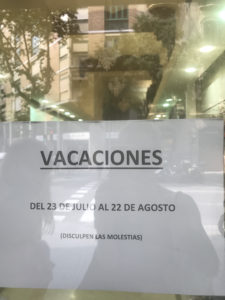
Vacation > work.
I can get on board with that.
2. Most of your friends will be international
If you’re looking for friendly locals, head to the south of Spain (or even Madrid). Catalans are, for the most part, closed and not welcoming to foreigners.
And I think that unfriendliness is contagious. ‘Cause even non-Catalan locals don’t (willingly) talk to strangers.
Let’s put it this way: If someone talks to me on the street here, I assume that either they’re crazy or they want money from me. I’ve become embarrassingly reliant on apps (like meetup and Bumble BFF) to meet people.
The friends you DO make here will probably be mostly expats. Cause, you know, sharing that commonality of being a foreigner. Plus, there are a ton of expats living in Barcelona. According to the Council of Europe, Italians are the largest minority group (making up 14.15% of the city’s foreigners), followed by Ecuador (12.63%), Pakistan (11.26%), Bolivia (9.59%), Peru (9.08%), China (8.89%), Morocco (8.59%), France (8.17%) and Colombia (8.00%).
3. Nobody wears flip-flops
Before moving to Barcelona, I basically lived in flip flops (I blame that on you, Brazil).
I soon realized (after lots of judgy looks from passerby) that this is a major faux pas in Barcelona. Sandals are ok in the summertime, but flip-flops are always a no go (unless you’re actually walking on sand).
Fun fact: Yesterday, I broke that rule. Then one of my flip-flops broke as I was walking down the street and I had to walk the rest of the way home half shoeless.
Maybe there’s a reason for the no flip-flop thing after all.
4. Wine is cheaper than water (yes, really)
Say hello to the land of delicious, cheap wine.
How cheap?
At restaurants, the going price is around 3.5 euros for a glass of vino (sometimes less). I’ve even paid as low as 10 euros for a *good* bottle of wine. In US, that’s what you pay for a glass. And unlike the US, in Spain you don’t have to add on that ridiculous tax and tip (unless you’re feeling generous, in which case, go right ahead).
5. People eat late
In Barcelona, people tend to eat lunch from 1:30 to 3:30PM and dinner from 9 to 11:30PM. This may seem late, but it’s actually early compared to other parts of Spain. In Madrid, people don’t dine before 10-11PM (there’s a reason for those afternoon siestas!).
For lunch, many restaurants offer 3-course meals for decent prices. Dinner tends to be a smaller course, with maybe just a few tapas.
6. Everything shuts down on Sundays
Including most shops, grocery stores and salons. The touristy parts, like Ciutat Vella (old town), remain pretty lively.
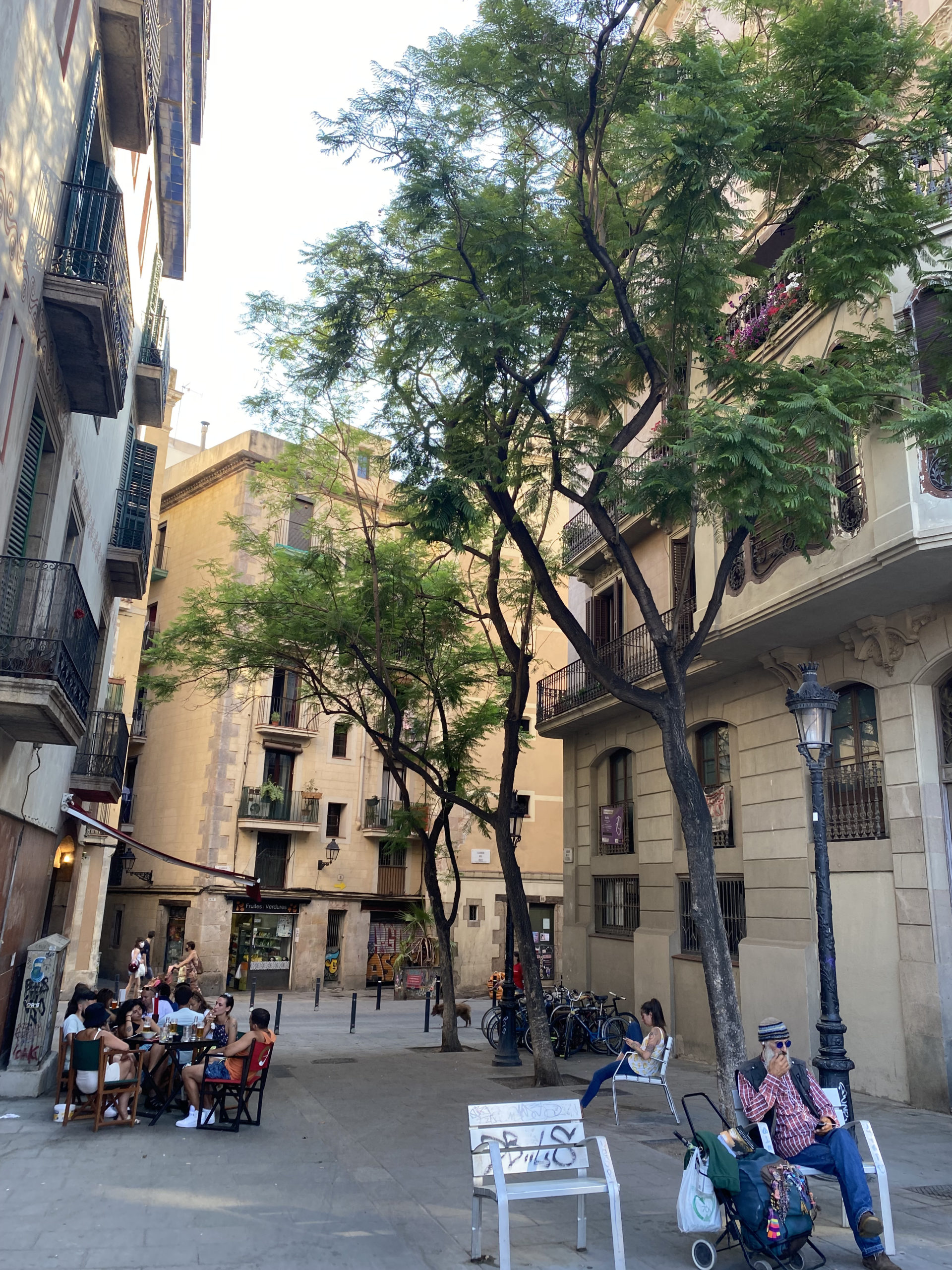
In other parts of the city (like Eixample), the streets feel eerily quiet and empty. But hey, there’s a silver lining here: You’ll learn to do other things with your time, like…go to the beach, bike around the city or hike up to Tibidabo…
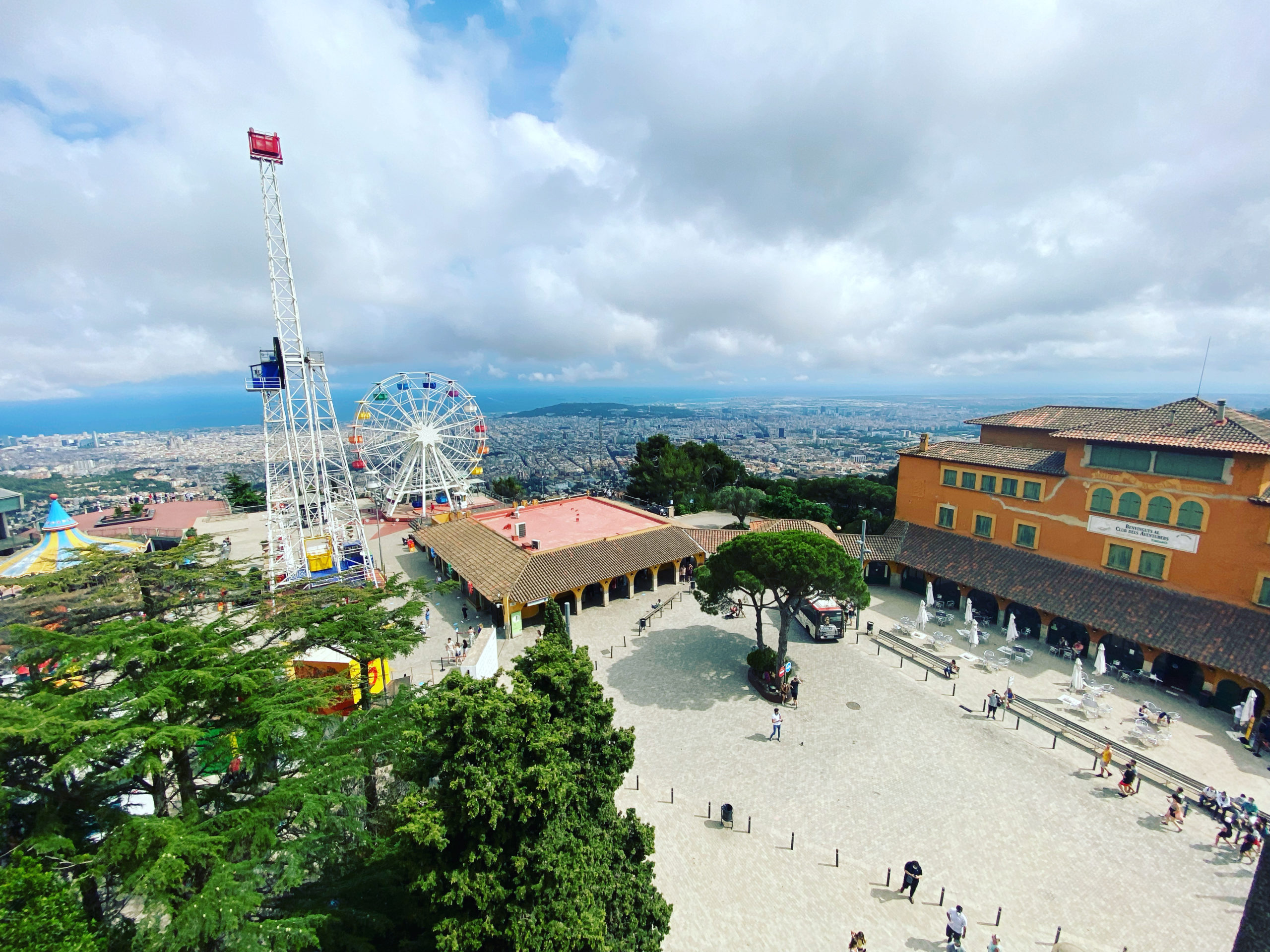
7. Scams abound
Barcelona is full of estafas (scams). Here are a few lessons that I’ve learned (sometimes the hard way)…
Don’t pay your rent in cash
Never put down a deposit until you actually move in somewhere. I’ve heard of people putting down a one-month deposit to reserve a bedroom or apartment…and then the person who took their money suddenly disappears. It happens. Too often.
If you have to put down a deposit to reserve the room, you could pay part of the deposit (like 100 euros) upfront and then pay the rest when you move in. Also get some sort of written contract and take a photo of the person’s Spanish ID card (don’t accept a foreign ID).
And don’t pay rent in cash if you can help it–better to pay via wire transfer, so there’s a record if you need to take legal action.
I used to pay my rent in cash. One time, my roommate who I always gave the rent money to wasn’t speaking to me (roommate drama). So I gave the money to one of my other roommates instead (asking her to pass along the money to my “landlord”).
Well, you can guess what happened. This manipulative biatch came back a few minutes later and goes “you gave me 150 euros, didn’t you?” I said “no…i gave you 250 euros…”
I was *sure* I did. I had counted the money before I handed it to her. But then I started to question myself…did I?
A few minutes later she came back with another 50 euros (that miraculously appeared out of nowhere…) and goes, “Oh I found another 50. I have 200. That’s all I have.”
I knew she was lying. But I had no proof that I had given her 250 euros. It was my word against hers. For the next week, this girl tried to gaslight me into forking over an extra 50 euros that she had stolen from me!
(This was after she stole a 30 euro cleaning fee I had left on the living room table…so I should have known better).
Well, you’ll be happy to know that I didn’t give her the 50 euros. But I did learn my lesson: Always send (rent) money via wire transfer (noting in the transfer what the money is for). And if you do pay in cash, don’t leave the money on a table somewhere or hand it to anyone else *but* the person you pay rent to. That’ll ensure you don’t get gaslighted, manipulated and scammed like I (almost) did!
And this may be common sense for you, but don’t leave cash lying around in your bedroom. Get a small safe on Amazon like this one and lock it up.
If you rent an apartment, don’t pay the last electricity bill
Landlords in Barcelona are notorious for not returning the deposit. When you try to leave, they’ll inevitably try to charge you for preexisting damage or claim that you broke the contract.
Doesn’t matter how nice they seem. This happens (almost) all the time.
So…take a video and pictures of the apartment before you move in. Never rent directly through the owner (better to go through an agency, because then at least you have a mediator). And don’t pay the last electricity bill (at least not until they return your deposit). If push comes to shove, you can always file a complaint with the Barcelona City Council.
When I rented an apartment in Barcelona, I put down a a non-refundable fee of 1350 euros, plus a deposit of 1350 euros. Well, the landlord refused to return a single penny of the deposit that I put down, claiming that we had broken the contract.
We anticipated this would happen, so we didn’t pay the last few electricity bills. Ha. I still lost a lot of money, but not as much as I could have.
Don’t get a phone contract (with Orange)
Never everrrrrrrrr get a contract with a phone company here (especially not Orange). Instead, get a pay-as-you-go plan. Trust me on this one.
I had a pay-as-you-go plan, but one day, the people at Orange persuaded me to get a contract. They told me they had a promotion going on for a few months and I could cancel whenever I wanted. So I got sucked in. I thought “ok sure…why not? I’ll just cancel my contract once the promotion is over…”
Bad decision. I forgot to cancel…and then later found out that I was charged 80 euros one month! For what? I have no idea. I didn’t even leave the country.
Another 100-euro phone bill later, I went to the Orange store to cancel my contract. The woman working there told me that I had to do it over the phone–but that I shouldn’t be charged for cancelling.
Well, as I could have predicted, the person I spoke to wanted to fine me 80 euros or so for cancelling my contract. So I went back to the Orange store and spoke to a different employee who told me “yes, that’s correct. You *should* be fined.”
Huh? A few weeks ago, your colleague told me I should not be fined. And now you’re telling me I should?? I was livid.
So a few days later, I went back to the store with my boyfriend and he (being a native Spanish speaker) explained the situation apparently better than I did–to a different employee. This guy told us that I shouldn’t have to pay anything. Then he called up Orange for me and got them to reimburse me.
Finally.
TLDR: 1) Don’t lock yourself into a contract with a phone company in Spain (especially not Orange). 2) If one person says no, keep trying until someone else says “yes.”
Be careful renting a car
One time, my boyfriend and I wanted to go camping. So I looked up the prices to rent a car. The prices listed online were pretty cheap (like 30 euros a day). I thought no way. This is too good to be true.
So I called the rental car company to confirm. They told me the price listed was indeed the total price and that there were NO hidden fees.
Ok, sweet!
We went to the airport to go pick up the rental car. Once we got there, the agent told us it would be closer to 100 euros (more than triple the price) with insurance, fees etc. WTF!?
No, we didn’t rent the car. But we DID learn to never book a car through Booking.com or any of those third-party booking sites. They’re all scams.
The best car agency I’ve found so far is Sixt (although they did take a month to return my deposit last time, which I wasn’t too pleased about). The prices listed on their website are higher, but they are the real prices–and they won’t try to scam you.
Regardless, it’s a good idea to get a video of the car before you rent it. My ex-boss, who lives in Italy, has a habit of doing this before he rents cars–and it’s saved him a ton of money (since he’s found that many agencies, including big names like Hertz, will try to charge him for preexisting damage when he returns the car).
Don’t open a bank account with Sabadell
I’m convinced that Sabadell bank is a complete scam. They try to charge you for every. little. thing. I was initially paying 35 euros every 3 months just to have an account with them!
I finally decided to close my account with Sabadell and open one with BBVA (which doesn’t have any fees). So I withdrew all my money and went to the bank to close my account. The teller told me that my account was closed and handed me a paper as proof.
I threw out the paper, thinking that I didn’t need it. Not a great move.
A month or so later, I found out that my account was still open–and Sabadell had tried to charge me for overdraft fees (since there was a recurring transaction that I had forgotten to transfer to my new account). Apparently, I was only allowed to close my account at my designated branch. So then why was I told that my account was closed?!
I had some heated phone conversations with the people at Sabadell. They told me that I had to pay the fine. I told them there wasn’t a chance in hell I was going to pay.
(Gotta say, my angry Spanish has gotten pretty good).
I then went back to the branch where I had cancelled my account and the man there told me that he *did* see that my account was closed (at least it should have been). He called the woman at the other branch and (finally) was able to fully close my account–and waive the fee.
You might argue that all that hassle wasn’t worth 70 euros (or whatever the overdraft fee was). But for me, it’s the principle. I don’t care if it’s 10 euros or 1000 euros–I refuse to let any company or individual scam me!
So–If you’re the same way and you know you shouldn’t be charged for something, keep persisting until you speak to the right person.
Now, where was I…
8. Catalans are *not* Spanish
About 50% of Catalans are separatist, meaning they want to be independent from the rest of Spain. And many don’t identify with the Spanish culture or nationality.
Catalan is spoken everywhere in Barcelona, including schools and other public institutions. Road signs, metro instructions and public notices are all in Catalan, not Spanish.
But don’t worry. All Catalans *do* speak Spanish (even if they pretend they don’t).
9. But…learn a bit of Catalan if you want to blend in with the locals
Confession: I don’t know more than a few words of Catalan. I’ve chosen to improve my Spanish (because it’s a language I can actually use outside of Catalonia).
That said…Catalans will respect you more if you speak a bit of their language, so I recommend learning a few phrases at least (this has been on my to-do list for the last 2.5 years).
Also…
10. You *must* have a good level of English
Being such a cosmopolitan, tourist-filled city, I’d argue that English is the most important language in Barcelona. Many international companies speak English as the main language–not Catalan or Spanish. My ex found it very hard to find a good job, given that he didn’t have a high level of English.
I’ve even met people who have lived here for years, have great jobs and don’t speak any Spanish (or Catalan). Not that I recommend it…but it’s possible to get by on just English.
11. The thieves are professional (no, for real)
Theft is so common in Barcelona that it’s not even considered a crime unless the amount stolen is at least 400 euros.
Crazy, right?
Theft is especially bad on public transportation and in the south of the city, like Barceloneta (the beach area), Sant Antoni, and the Ciutat Vella (Gotico, Raval and El Born). Theft seems to decrease the further north of the city you go. I feel much safer in northern Eixample and Gracia, for example.
But no matter what neighborhood you’re in, you can’t be too careful. Never have your phone sticking out of your pocket. Use a crossbody bag–and always keep it zippered, in front of you and within eyesight.
I’ve fortunately never been pickpocketed in Barcelona (living in Brazil taught me to watch my things like a hawk). But I *was* almost (quite aggressively) robbed.
Here’s what happened: I was sitting down on a bench in Sant Antoni around midnight, when this twenty-some year-old punk came up to me and aggressively tried to pull my phone out of my hand (this was a two-week old iPhone too!).
Thanks to my Otterbox case and fast reflexes, I was able to maintain a grip on my phone and pull it back.
But THEN this scumbag reached for my bag. I immediately crouched down to cover my stuff from him.
Realizing I wasn’t such an easy prey after all, the guy ran off and I chased after him yelling “LADRON, LADRON!!” (“thief, thief!”)
(Maybe not the smartest idea in retrospect but I was ANGRY and adrenaline-fueled. Plus, there were people around, so I didn’t feel completely unsafe doing that).
My point? If you have your phone out on the street, be careful. Especially at night in those neighborhoods.
And don’t buy an expensive bike (unless you plan on parking it inside all the time). Buy a cheap bike and invest in a good lock–you’re gonna need it. Seriously. This city is filled with locked-up bikes with missing wheels and seats.
12. Bicing is the best way to get around
That’s one reason why I prefer Bicing (the city’s bike system). There are bike stations all throughout the city, where you can take out and return bikes. It costs 50 euros for the year and that membership gives you the first 30 minutes of every bike ride free.
Barcelona is no Amsterdam, but it’s pretty bike friendly, with bike lanes all throughout the city. But you do have to be careful with all the cars and scooters around. I’ve had two pretty bad accidents (well, by bad I mean that I fell and got bruised up. Could have been much worse). Here was the damage:

Yeah…it hurt.
13. It’s expensive
Ok so compared to pretty much any city in the US, Barcelona is cheap. But given that many of the salaries here are below 1000 euros per month (!!!), it’s expensive. In terms of cost of living, I’ve heard that it’s comparable to Berlin–except that Berlin has much higher salaries than Barcelona.
I spend between 1300-1400 euros per month (to live in a shared apartment). Much less than I’d pay in New York or San Francisco…but a lot compared to other cities in Spain.
To give you an idea, a decent room in a shared apartment costs at least 450-500 euros. A studio apartment in the center costs upwards of 750 euros (not to mention all the money you have to put down, like two months deposit plus one month in fees).
14. A LOT of people smoke
Fortunately, smoking was banned in indoor public spaces a few years ago. The downside to that? People smoke everywhere else. I honestly feel like I’m engulfed in a haze of cigarette smoke whenever I walk down the street.
Heads up: Many people also smoke in their apartments here. So if you rent a bedroom in a shared apartment, always ask if your potential roomies smoke inside. I shared a place with a guy who smoked in the apartment and even though he only smoked on “his side,” the entire apartment reeked of cigarette smoke. Gross.
15. Noise pollution is bad
I once met some people visiting from Berlin who told me how Barcelona was sooooo noisy in comparison.
I’d never thought of it until then…But it’s true. Blame it on the high concentration of scooters, but 57% of Barcelona’s population faces noise levels over 65 decibels throughout the day.
(That helps explain why I often have to shout to people I’m talking to as I’m walking down the street!)
16. There isn’t a lot of green space
There aren’t many parks in the city center. Good news is that you if you want to connect with nature, it’s never *that* far away.
There’s Parc de Ciutadella in El Born. Montjuic by Poble Sec. Park Guell in the north of the city. The Labyrinth park….


If you’re feeling adventurous, you can head to Sitges or Tarragona. Or rent a car and go to Costa Brava or the Catalonian mountains.

17. Tipping isn’t necessary
One thing I HATE about the US? The damn tipping. And how the prices are never what they seem. I hate how you have to tack on tax and tip to every little thing. I hate how it’s expected and you’re a complete jerk if you tip less than 20%. Even for takeaway!
Ok rant over. Fortunately tips aren’t required (or expected) in Spain. Catalans are…careful with their money. Ha. So the no-tipping thing is particularly true in Barcelona.
At restaurants, people tend to round up (so if the total is 47.50, people pay 48-50 euros). If you’re really happy with the service, a 10% tip is definitely appreciated. And if you go to a 5-star restaurant, you may even be expected to. But for the most part, waiters don’t expect a tip, since that’s included in their compensation.
Oh and IVA (the tax) is (almost) always included in the prices. So the price you see is the price you pay (hallelujah).
18. Weekend escapades are a MUST
One of the best parts of living in Barcelona? Getting to *leave* Barcelona.
There is SO much to see outside of the city. Think: Costa Brava…the Catalonian mountains…vineyards (for all you fellow wine-drinkers).
I’ve only seen a small fraction of Catalonia, but here are a few highlights:
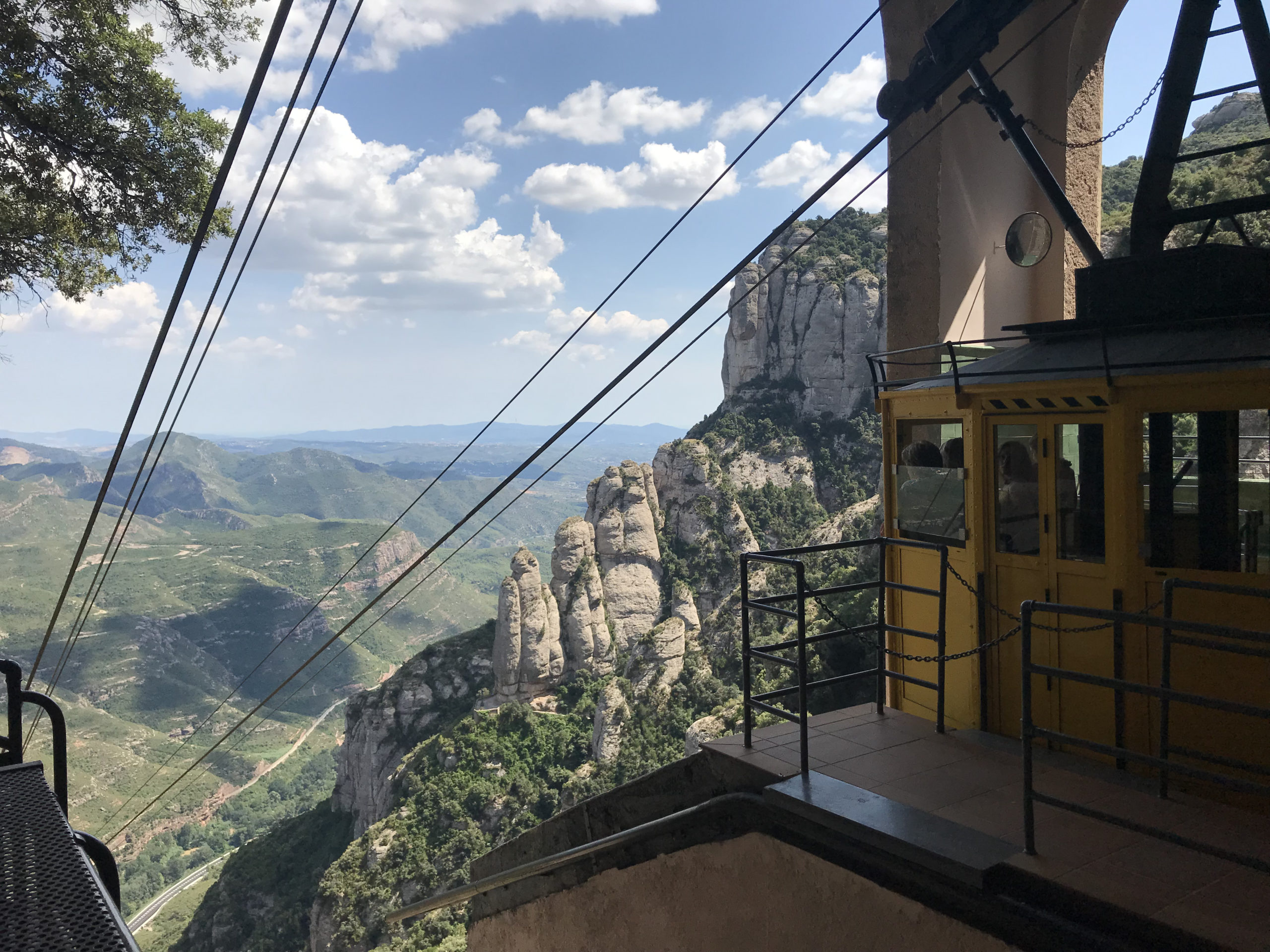

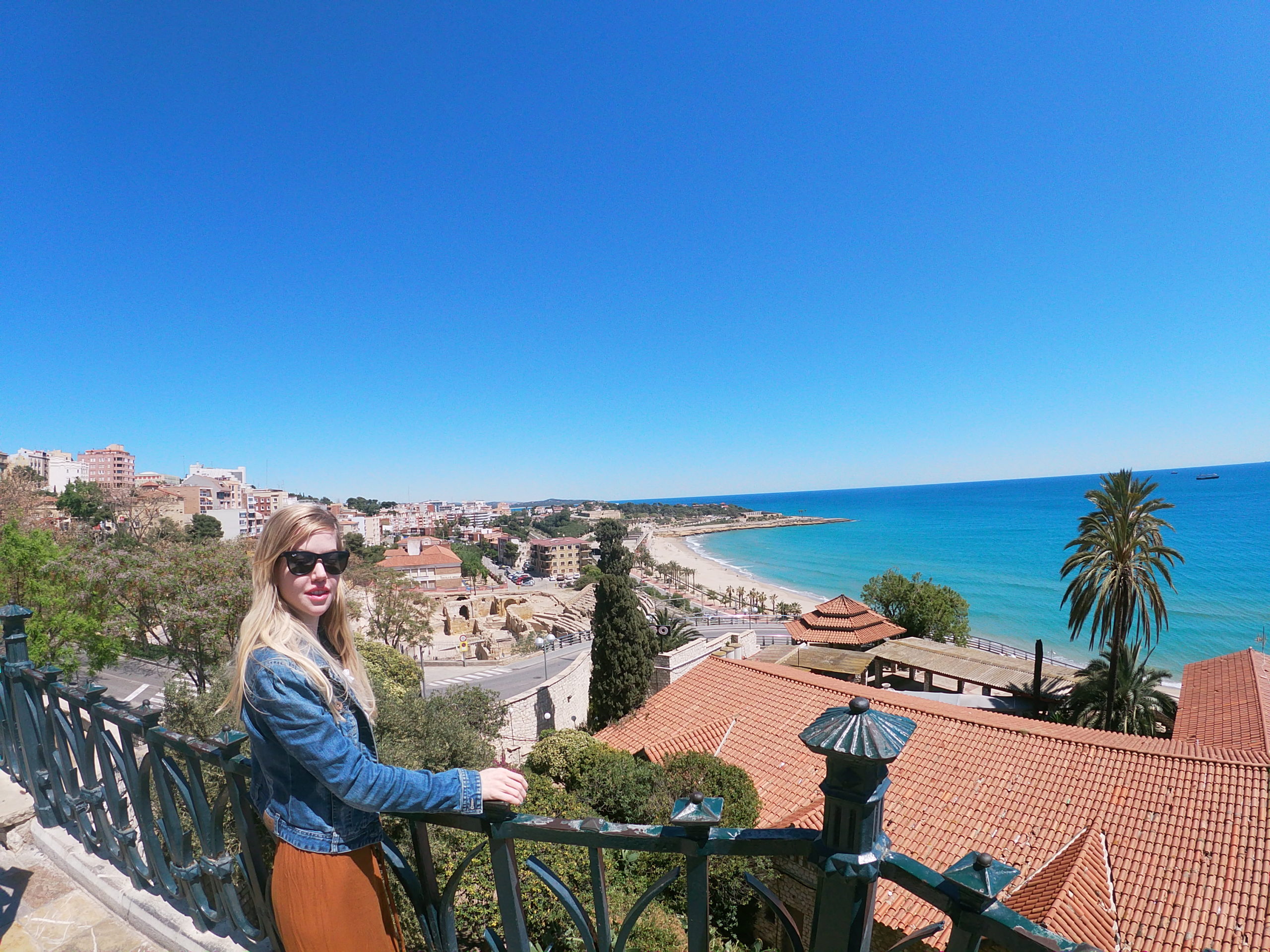
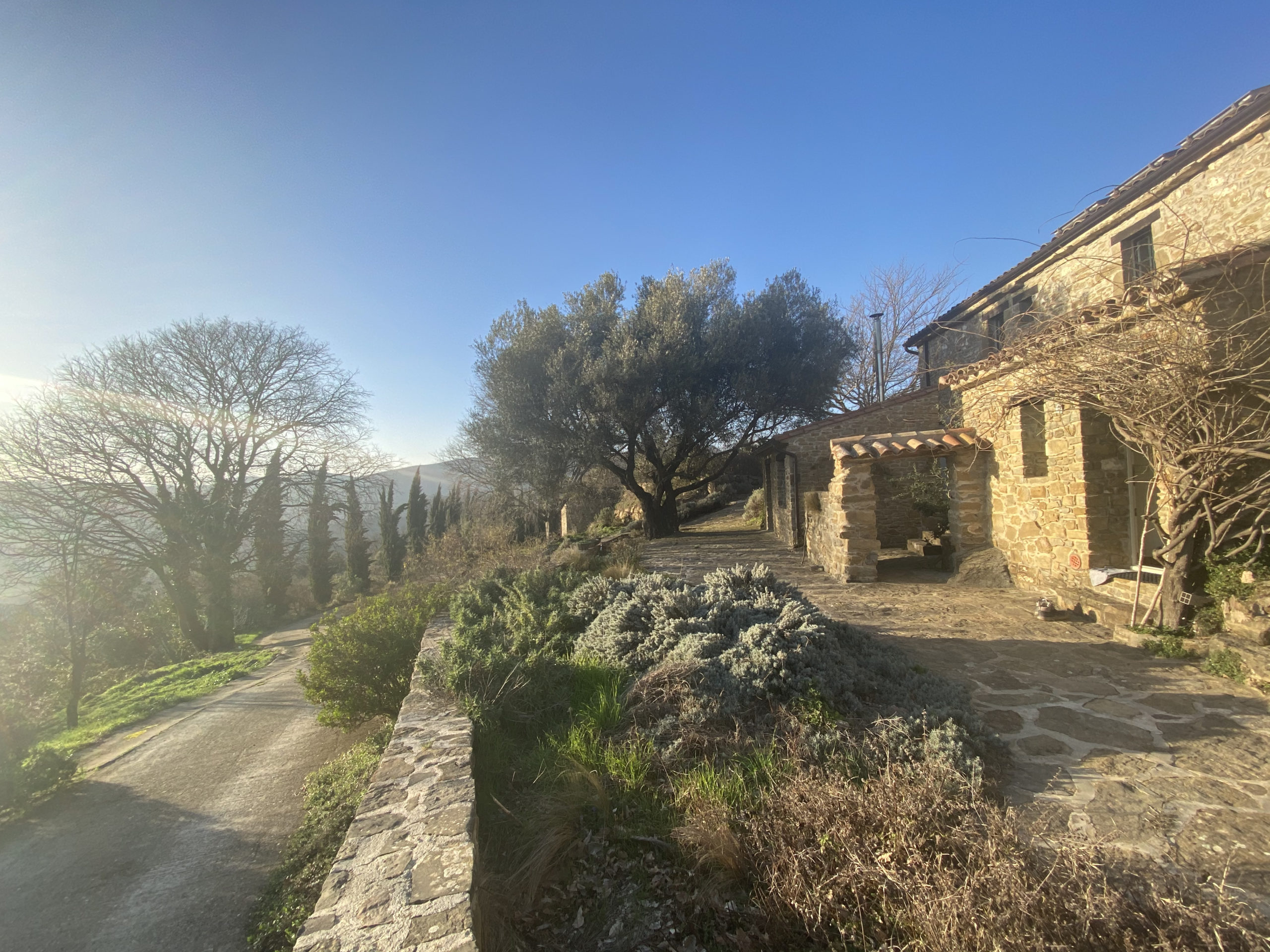
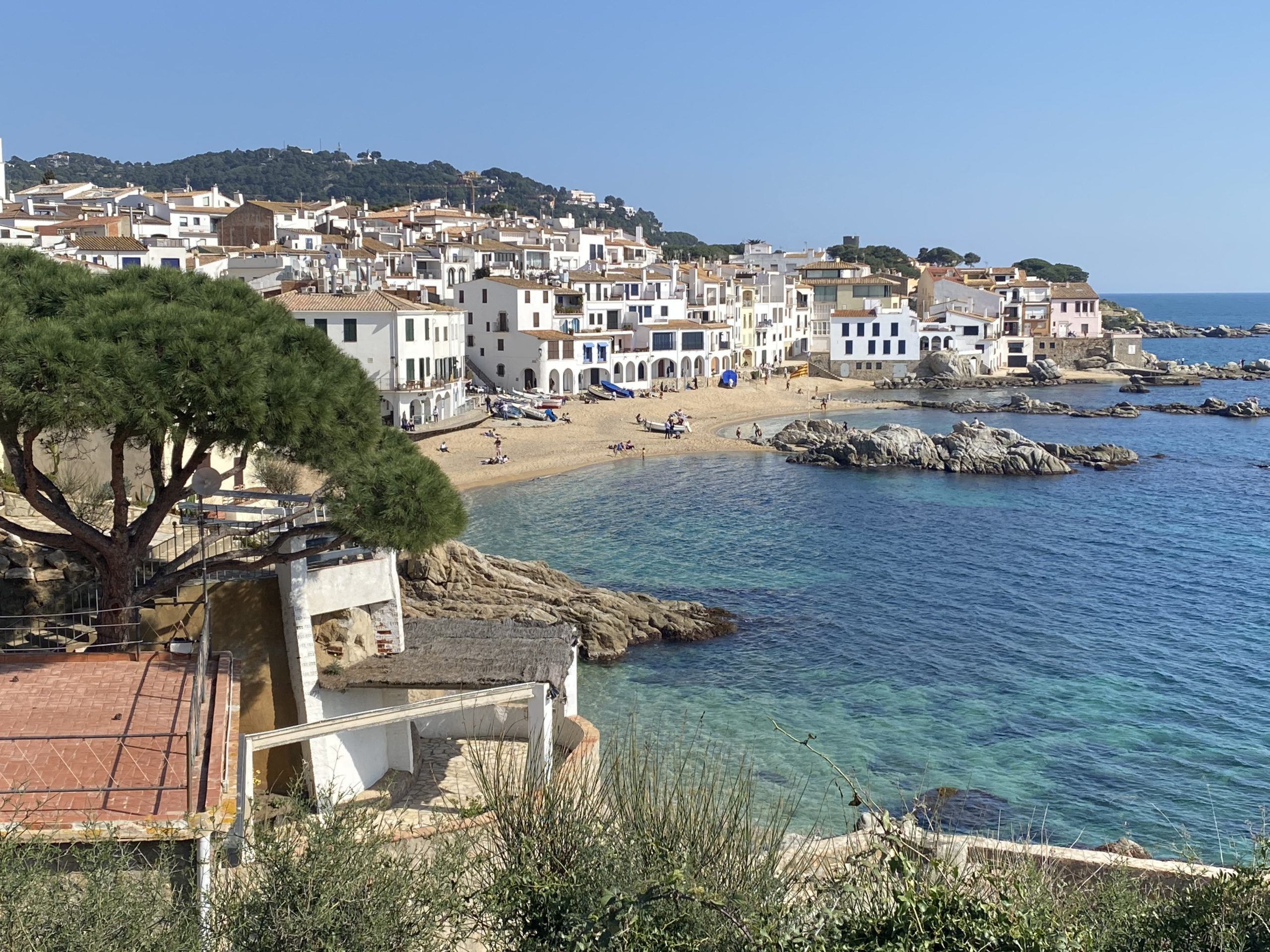
Not too shabby, huh?
The only problem is that public transport won’t get you very far. You’ll need to either go with one of those tacky group tour buses…or rent a car. If you’re not afraid of hopping in a car with complete strangers, you can also use the ride-sharing app, Blahbahcar (it’s safer than it seems, I swear. Next week, I’m actually going to a friend’s wedding. Wanna know how I met him? Blahblahcar.)
19. Each barrio is unique
One thing I love about Barcelona is the size of the city. You can be almost anywhere in the city within 30 minutes (by bike or public transport). And each barrio (neighborhood) has its own character.
There’s the bohemian plazas of Gracia. The old warehouses of Poble Nou. The grimy, skater-friendly streets of Raval. The pintxo bars of Poble Sec. The chic and ever-elegant Eixample…in Barcelona there truly is something for every personality type.
20. Bureaucracy is a headache
When you first move to Barcelona, you’ll have to get your NIE (residency card). Prepare yourself: Getting an appointment is a massive pain in the ar*e. You’ll have to try over and over again, at all hours of the day, until finally the website decides it has tortured you enough.
Same applies for other appointments, like getting your driver’s license or other legal certificates.
Even so…
21. You’re gonna love living in Barcelona
Tedious paperwork, estafas, and high rent prices aside, you’re (probably) gonna love living in Barcelona.
So..made up your mind yet?

